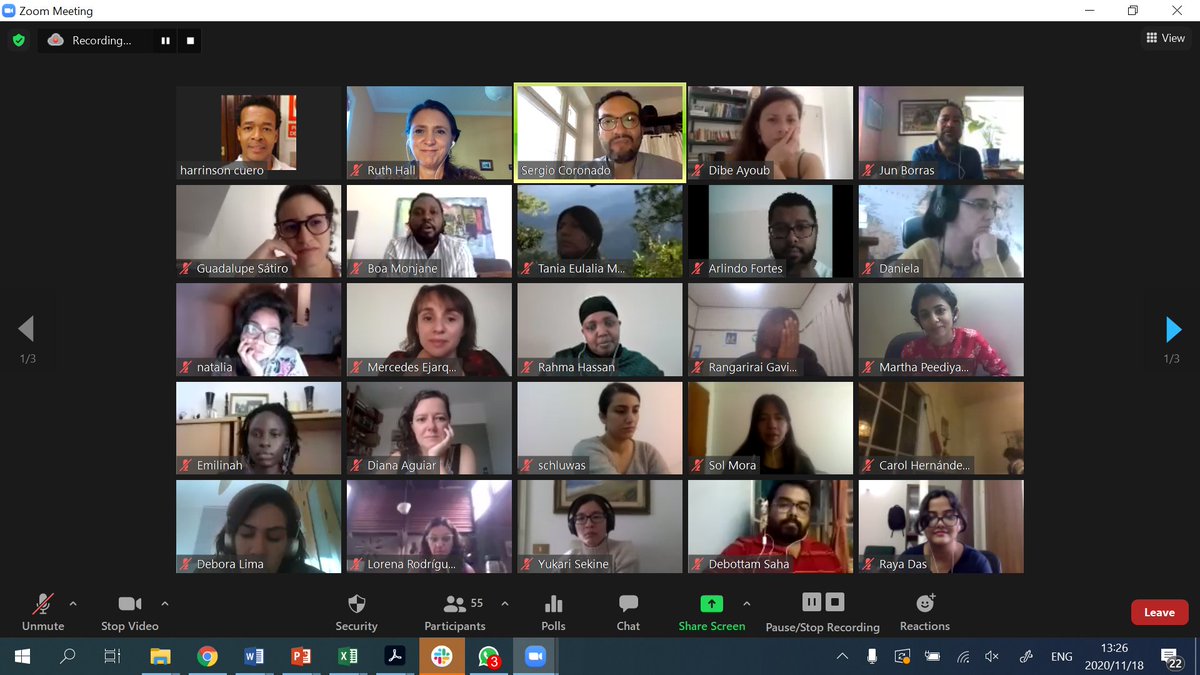
FREE ACCESS to articles on #COVID19 pandemic & post-pandemic futures in @Peasant_Journal - for the next few days only. Here's the list. Please share!
Agroecology and the reconstruction of a post-COVID-19 agriculture, by Miguel Altieri & Clara Nicholls
tandfonline.com/doi/full/10.10…
Agroecology and the reconstruction of a post-COVID-19 agriculture, by Miguel Altieri & Clara Nicholls
tandfonline.com/doi/full/10.10…
From biomedical to politico-economic crisis: the food system in times of Covid-19, by Jan Douwe van der Ploeg
- free to access for the next few days only @Peasant_Journal
tandfonline.com/doi/full/10.10…
- free to access for the next few days only @Peasant_Journal
tandfonline.com/doi/full/10.10…
This food crisis is different: COVID-19 and the fragility of the neoliberal food security order, by Jennifer Clapp & William G. Moseley @JennClapp @WilliamGMoseley
- free to access for the next few days only @Peasant_Journal #Africanfoodsystems
tandfonline.com/doi/full/10.10…
- free to access for the next few days only @Peasant_Journal #Africanfoodsystems
tandfonline.com/doi/full/10.10…
What grows from a pandemic? Toward an abolitionist agroecology, by Maywa Montenegro de Wit
@MaywaMontenegro
- free to access for the next few days only @Peasant_Journal
tandfonline.com/doi/full/10.10…
@MaywaMontenegro
- free to access for the next few days only @Peasant_Journal
tandfonline.com/doi/full/10.10…
Crisis politics and US farm labor: health justice and Florida farmworkers amid a pandemic, by Nezahualcoyotl Xiuhtecutli & Annie Shattuck @nezahualcoyotl8 @akshattuck
- free to access for the next few days only @Peasant_Journal
tandfonline.com/doi/full/10.10…
- free to access for the next few days only @Peasant_Journal
tandfonline.com/doi/full/10.10…
COVID-19 and pastoralism: reflections from three continents, by Giulia Simula , Tsering Bum , Domenica Farinella , Natasha Maru , Tahira Shariff Mohamed , Masresha Taye & Palden Tsering
- free to access for the next few days only @Peasant_Journal
tandfonline.com/doi/full/10.10…
- free to access for the next few days only @Peasant_Journal
tandfonline.com/doi/full/10.10…
Rural public health systems and accountability politics: insights from grassroots health rights defenders in Guatemala, by Julia Fischer-Mackey, Benilda Batzin , Paulina Culum & Jonathan Fox
- free to access for the next few days only @Peasant_Journal
tandfonline.com/doi/full/10.10…
- free to access for the next few days only @Peasant_Journal
tandfonline.com/doi/full/10.10…
Interview with João Pedro Stédile, national leader of the MST – Brazil, by Sergio Sauer
- free to access for the next few days only @Peasant_Journal
tandfonline.com/doi/full/10.10…
- free to access for the next few days only @Peasant_Journal
tandfonline.com/doi/full/10.10…
A green new deal for agriculture: for, within, or against capitalism?, by Benjamin Selwyn
- free to access for the next few days only @Peasant_Journal
tandfonline.com/doi/full/10.10…
- free to access for the next few days only @Peasant_Journal
tandfonline.com/doi/full/10.10…
The Long New Deal, by Raj Patel & Jim Goodman
- free to access for the next few days only @Peasant_Journal @_RajPatel tandfonline.com/doi/full/10.10…
- free to access for the next few days only @Peasant_Journal @_RajPatel tandfonline.com/doi/full/10.10…
From ‘populist moment’ to authoritarian era: challenges, dangers, possibilities, by Marc Edelman @MarcEdelmanNYC
- free to access for the next few days only @Peasant_Journal
tandfonline.com/doi/full/10.10…
- free to access for the next few days only @Peasant_Journal
tandfonline.com/doi/full/10.10…
@threadreaderapp unroll
• • •
Missing some Tweet in this thread? You can try to
force a refresh








